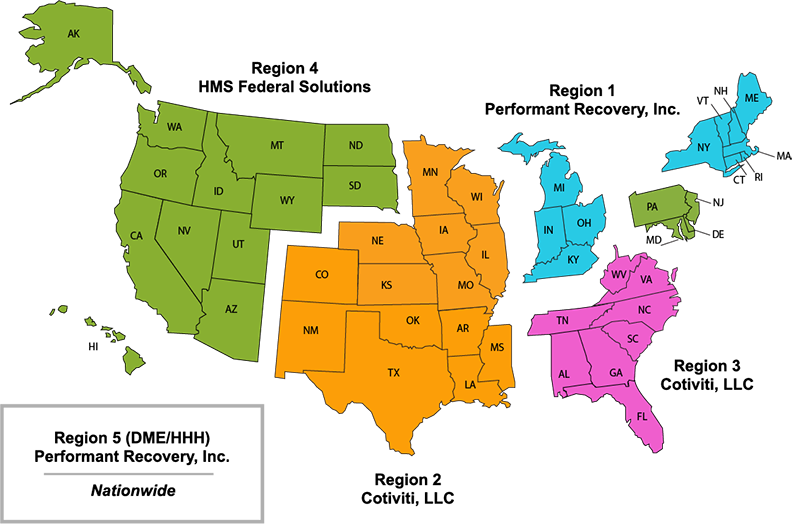Mac For Cms
Like any modern health care program, Medicare has many moving parts that allow it to run as smoothly as possible. Most of these parts work behind the scenes so that beneficiaries can focus on enjoying the benefits of their coverage. One of these moving parts is a Medicare Administrative Contractor (MAC). These often-unseen agents of Medicare can handle crucial services for beneficiaries when they need them, especially in Original Medicare.
Who are the MACs?
Cms Mac For California
MACs were created by the Centers for Medicare & Medicaid Services (CMS) in 2003 by the Medicare Prescription Drug Improvement, and Modernization Act (MMA) of 2003. The goal of this change was to replace the Medicare Part A fiscal intermediaries (FIs) and Part B carriers with a single entity, the MAC. Specifically, MACs are private health care insurers that are awarded geographic coverage areas in which they can operate. These regions can, and often do, include multiple states.
Medicaid and CHIP (MAC) Learning Collaboratives The Centers for Medicare and Medicaid Services (CMS) established the Medicaid and CHIP Learning Collaboratives (MAC Learning Collaboratives) to achieve high-performing state health coverage programs, a goal that requires a robust working relationship among federal and state partners. The Centers for Medicare & Medicaid Services (CMS) developed its Medicaid and Children's Health Insurance Program (CHIP) Scorecard to increase public transparency about the.
Currently, there are two different types of MACs that are defined by the types of services they provide. In the United States, there are 12 Part A and B MACs that assist with Original Medicare. There are also four durable medical equipment (DME) MACs that operate independently of the A and B MACs. Together, these MACs assist roughly 68 percent of the Medicare beneficiary population.
What Does a MAC Do?
Probably the most important job that MACs do for beneficiaries is handling the payment of Medicare’s fee-for-service (FFS) program. Without them, the reimbursement pipeline between Medicare and health care providers would break down. Why? Because MACs process the claims that the providers make. So, when your doctor submits their claim for payment to Medicare, it’s your region’s MAC that is receiving and processing the claim. MACs also help providers enroll in the FFS program so that they can receive payment from Medicare. They’re instrumental in the running and upkeep of the FFS program, running audits, and provider educational services.
One of the primary roles that MACs perform regards Medicare appeals. They act as a go-between for the beneficiary, the service provider, and CMS. If you disagree with a coverage decision from Medicare, the regional MAC will be involved with the process. For Original Medicare coverage appeals, they’ll be involved in the first step of appeals, which entails a redetermination of coverage. MACs are the company that processes these claims and makes a decision on the redetermination. They’re also involved in Part D coverage determinations, so if you disagree with your Part D coverage or costs, you’ll be working with a MAC again. The MAC will work with CMS to create local coverage determinations, when necessary, or follow national ones, when in place.
As mentioned above, there is also another type of MAC that handles DME claims. There are fewer DME MACs than Part A and B MACs, but they handle a larger region. They focus only on DME concerns, such as DME supplier claims for reimbursement and appeals.
Cms Mac For Texas
How to Find a MAC
Finding your MAC region is pretty simple. If you’re curious, you can head over to CMS’ list of MAC resources by state. On the list, you can navigate to your state and find which Part A and B and DME MACs (broken down into jurisdictions) are assigned to your state. From there, you’ll also be linked to that MAC’s website. Additionally, you can find out more information about your jurisdictions on the Who Are MACs website. There, you’ll find a webpage for each jurisdiction that covers what states are included, which MAC is assigned to which jurisdiction, and how to get in contact with them. The pages also feature a Contract Award Information section that covers how a particular MAC was awarded their jurisdiction.
Cms Mac For Florida

Mac Cms Software
● ● ●
Ivms For Mac (cms Software)
In many ways, Medicare runs like a well-oiled machine. On the surface, it seems like one cohesive unit that helps you out, but under the surface, you’ll find many intricate, little parts that allow the overall system to run the way it does. The MACs are one of these unseen pieces that do a major task. Without them handling the FFS and the appeals, providers wouldn’t get paid and beneficiaries wouldn’t be able to argue their case if they disagree with their coverage situation. For three little letters, MACs can have a big impact!
